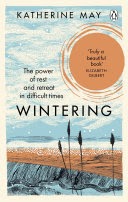
Katherine May’s “Wintering” offers a powerful counterpoint to our society’s relentless pursuit of productivity. It reminds us that embracing periods of rest and retreat, both physically and emotionally, is essential for our well-being. Here’s a look at some key lessons:
1. The Power of Pause:
We often view rest as a sign of weakness, but “Wintering” reframes it as a necessary pause for repair and reflection. Just like nature withdraws in winter, allowing the land to rest and replenish, we too need times of quiet introspection. This “wintering” allows us to process experiences, heal from emotional wounds, and gain clarity on our path forward.
2. Facing the Dark to Find the Light:
Difficult times are inevitable, but “Wintering” encourages us to see them as opportunities for growth. When we allow ourselves to fully experience the darkness, the frustration, or the sadness, we can gain a deeper understanding of ourselves and our strengths. It’s by confronting these shadows that we emerge stronger and more resilient.
3. Nature as a Sanctuary:
The natural world has a profound restorative power. The book highlights the benefits of spending time in nature, whether it’s a walk in the park or a hike in the wilderness. Immersing ourselves in the beauty and tranquility of nature can provide solace, a sense of perspective, and a reminder of our connection to something larger than ourselves.
4. Self-Compassion: Your Greatest Ally:
When facing challenges, it’s easy to fall into self-criticism. Katherine emphasizes the importance of self-compassion. Be kind to yourself, acknowledge your struggles, and celebrate your small victories. Prioritize activities that nourish your mind, body, and spirit, just like you would nurture a loved one going through a tough time.
5. Slow Down to Savor the Journey:
Our fast-paced world often leaves us feeling overwhelmed and disconnected. “Wintering” challenges us to slow down and appreciate the present moment. This may involve simplifying our schedules, setting realistic goals, or practicing mindfulness techniques. By embracing a slower pace of life, we create space for creativity, deeper connections with others, and a greater appreciation for the beauty of everyday life.
6. Redefining Productivity:
Productivity isn’t just about churning out tasks; it’s about creating a foundation for sustainable well-being. This profound read encourages us to redefine productivity. It’s about taking care of ourselves physically, mentally, and emotionally. When we prioritize our well-being, we create the space for sustained focus, creativity, and accomplishment.
7. The Comfort of Rituals:
Routines can provide a sense of stability and comfort, especially during difficult times. “Wintering” highlights the power of rituals in creating a sense of structure and purpose. Establishing meaningful routines, whether it’s a morning meditation practice or a weekly family dinner, can help us feel grounded and in control amidst uncertainty.
8. Find Your Wintering Practices:
Each of us needs different things to feel nurtured and supported during challenging times. “Wintering” encourages us to identify our own unique “wintering practices.” This may include activities like meditation, journaling, spending time with loved ones, engaging in creative pursuits, or simply taking a long bath. It is important to experiment and find what works best for us, as it’ll help us create a toolbox of self-care strategies we can rely on when needed.
9. Hope for Spring:
“Wintering” reminds us that even the harshest winters eventually give way to spring. This offers a powerful message of hope and resilience. No matter how difficult things seem, there is always the potential for growth and renewal. By embracing the lessons of winter, we can cultivate the inner strength and resources to navigate life’s challenges and emerge stronger and more whole on the other side.

